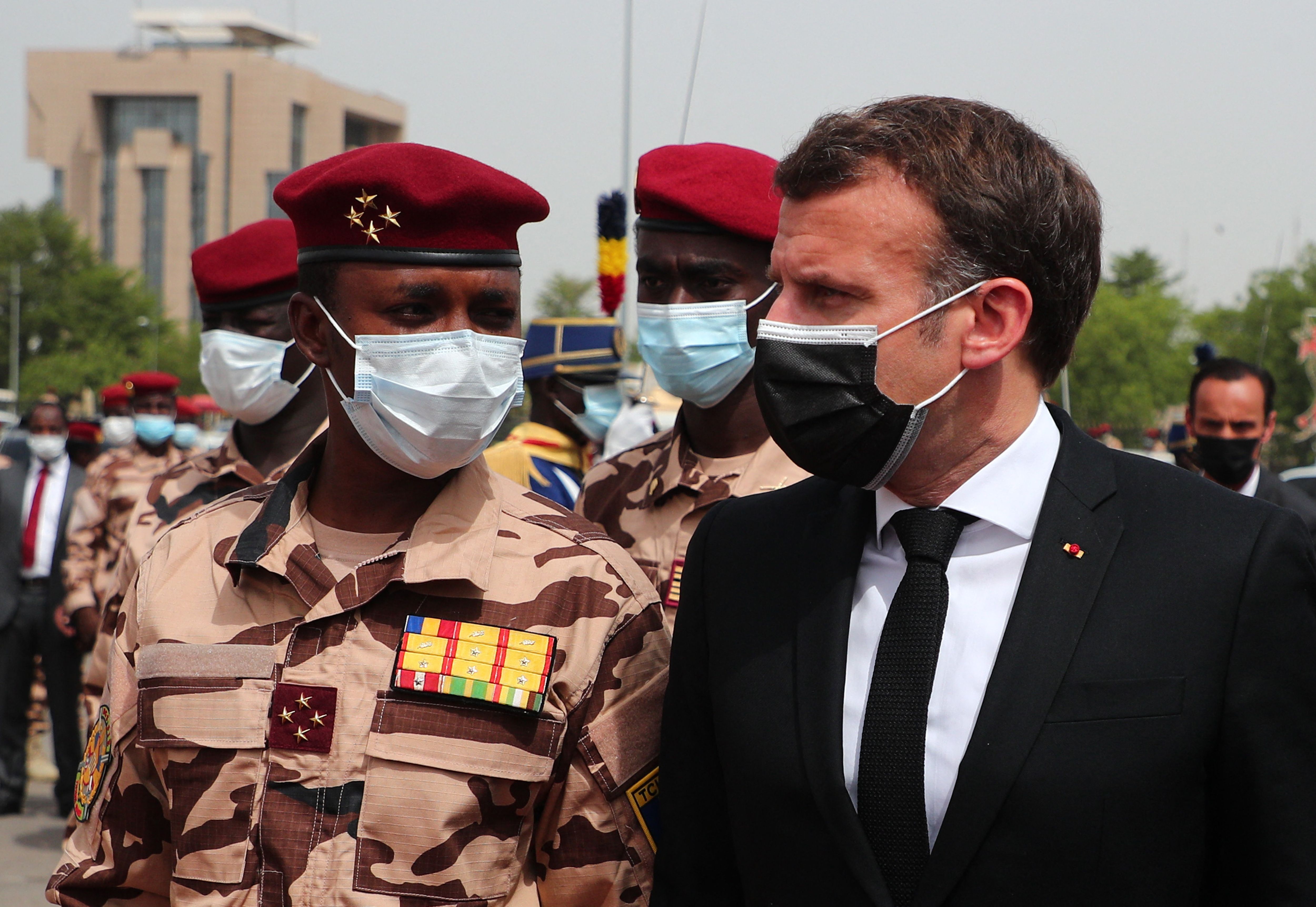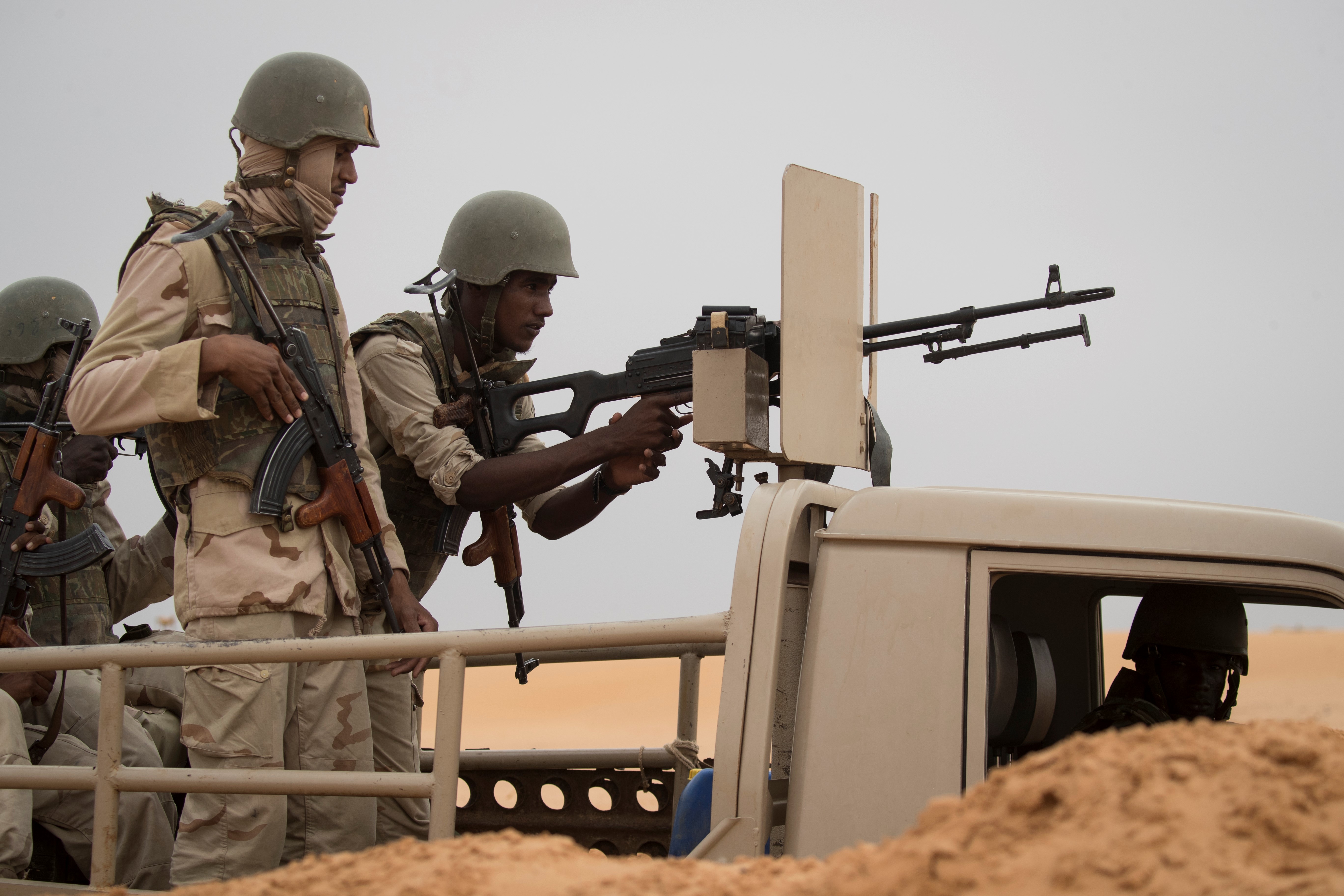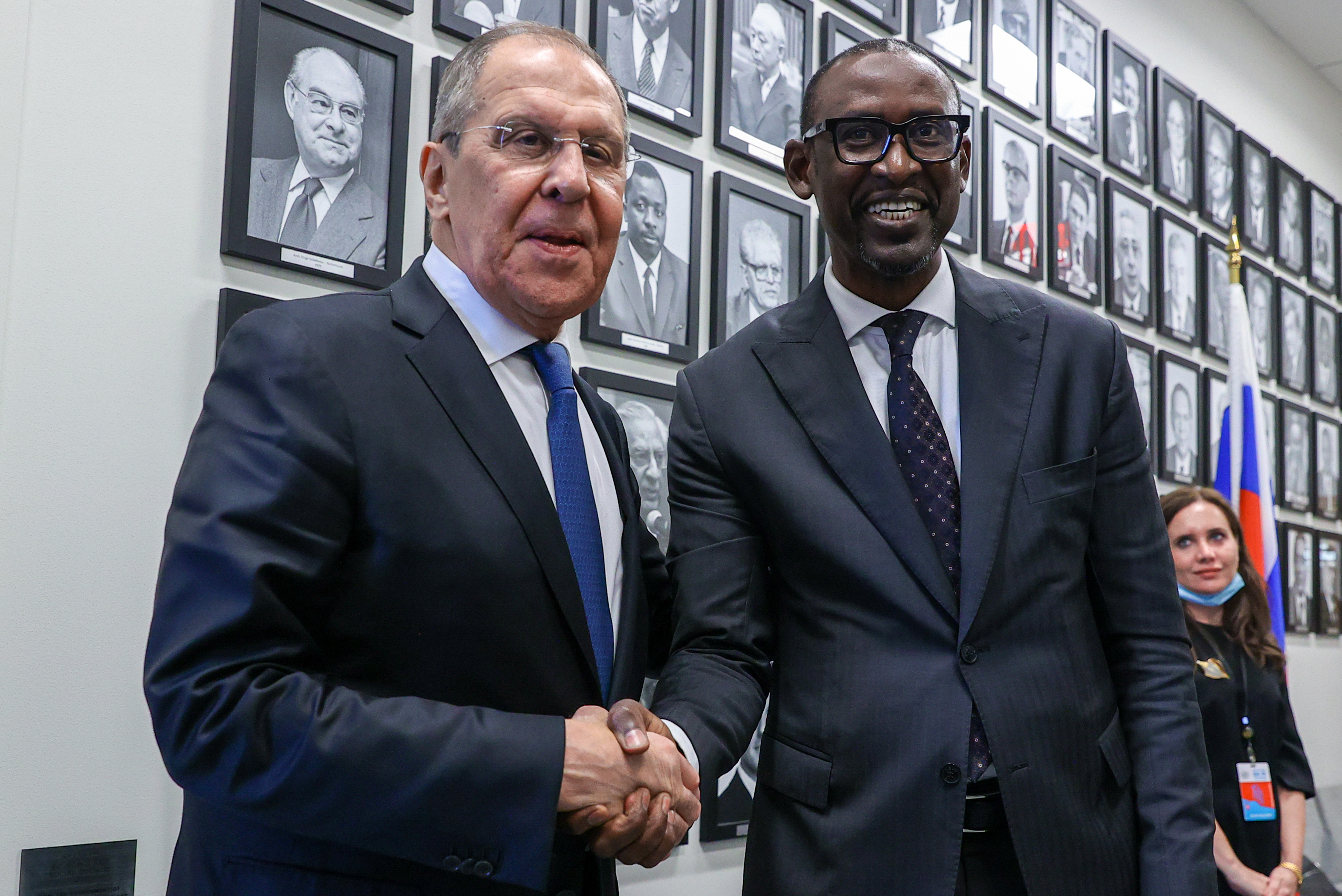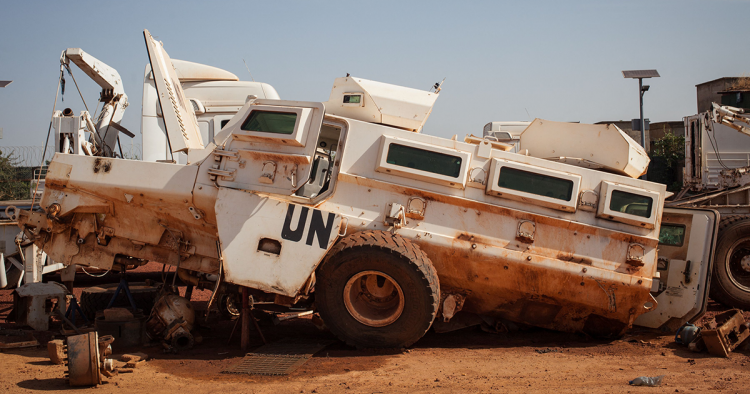Events in the Sahel, and Mali especially, are taking an uncertain and worrying turn. Mali witnessed two coups d’état in less than a year, while the West African Sahel went through its most violent year yet and there are no signs that the violence is slowing down. In the midst of this unprecedented instability, recent developments involving Mali’s transitional government and the international community, France in particular, provide no assurances that things are likely to improve anytime soon. Mali’s government is considering hiring the Wagner Group, a Russian private military company (PMC) better known for its human rights violations than anything else. If Bamako moves ahead with the plan, it could disrupt the country’s weak counterterrorism and stabilization efforts. The international community has pushed back, warning against such a move. While France, Mali’s key partner, has promised it will not abandon the country, it has already started vacating key bases in the north. Germany, an important contributor to the United Nations Multidimensional Integrated Stabilization Mission in Mali (MINUSMA), has also warned against hiring the Russian PMC.
Tensions at the diplomatic level are running high as the security situation in Mali and the Sahel region continues to worsen. However, at least for now, there are no apparent changes on the ground other than what was already planned prior to the emergence of the Wagner rumors. France announced its plans to vacate bases in Mali in June 2020 while Germany has invested and continues to invest in stabilization efforts through MINUSMA and its development agency. The United States has maintained its cooperation with the Malian authorities, including recent security collaboration and support for the education and health sectors, although the U.S. ambassador to the U.N, Linda Thomas-Greenfield, has expressed "serious concern" about a possible deployment in Mali of the controversial Russian private security group. Growing diplomatic tensions between France and Mali are alarming though, as they could severely undermine anti-terrorism efforts at a time when regional dynamics are in flux.
Deteriorating Security Situation in the Sahel and West Africa
The security situation in Mali and the Sahel remains deeply concerning almost a decade after the 2012 crisis, when a new rebellion launched in the north and the retreat of Malian forces allowed a coalition of jihadist groups to occupy the region. The French intervention in January 2013 liberated key towns from jihadist occupation; however, the crisis persisted and expanded. The conflict gave rise to several security and stabilization efforts, although violence increased every year and continued to expand to new areas. While jihadist groups affiliated with al-Qaeda and later the Islamic State first emerged in Mali, they are now operating in several West African states. After starting in northern Mali, violent extremist organizations gradually expanded to central and southern Mali, Niger, Burkina Faso, and more recently to northern Côte d’Ivoire and northern Benin. This is a result of a combination of factors, including jihadist groups’ ability to build ties with actors that have an interest in destabilization, such as criminal networks, and states’ inability to react quickly and effectively to the apparent rise of militancy in parts of their territory.
In addition to extremist groups, the region also witnessed an increase in violence between communities based on ethnic affiliation. Mali, Niger, and Burkina Faso all saw extrajudicial killings of ethnic groups perceived and/or suspected of supporting jihadist groups, mainly Fulani communities. For instance, since at least 2017 ethnic-based militias have emerged in central Mali that are responsible for multiple mass killings of civilians. To make matters worse, local security forces and even international forces, facing pressure to show results on the ground, have been accused of abuses and extrajudicial killings under the pretext of counterterrorism efforts. The number of civilians killed by extremist groups and security forces in Mali, Niger, and Burkina Faso reached record highs in 2020 and 2021. In Mali, where MINUSMA is present, data showed that state forces killed more civilians than extremist groups. In Mali, Niger, and Burkina Faso together 2,400 civilians were killed in 2020, making it the deadliest year yet. This year may be on track to surpass it, however; as of April 2021, more than 1,000 people had been killed in the Sahel, including soldiers, militants, and at least 450 civilians.
Jihadist groups have proven adaptable, demonstrating patience and flexibility as the limitations of counterterrorism and stabilization efforts have become clear. In terms of stabilization, MINUSMA struggles to provide effective protection to civilians in northern and central Mali, where several massacres of civilians have occurred. Given the lack of adequate protection of civilians, communities have formed their own ethnic-based militias under the pretext of protecting their communities and economic interests. This has subsequently led to a cycle of unprecedented violence motivated by vengeance and reprisals. Some communities are targeted by jihadists because they are accused of collaborating with security forces, while others are targeted because they are accused of collaborating and/or supporting jihadist groups. Simultaneously, MINUSMA faces pressure from the Malian government and France to expand its mandate beyond civilian protection to engage in counterterrorism operations currently carried out mainly by local and regional forces, France, and a few European partners with U.S. logistical and intelligence support. While this seems unlikely, MINUSMA will not only continue to face security threats from extremist groups but also challenges from these groups in areas they control and govern in central and northern Mali. Jihadist groups’ activities make achieving the mission’s stabilization goals very difficult, time consuming, and resource-intensive. To counter this continuing rise of extremist groups and to improve its image among certain communities, the mission must do more to protect civilians, including against armed banditry and ethnic violence, and to invest in longer-term development projects as part of its stabilization efforts rather than just quick impact ones.
In terms of counterterrorism efforts, in early 2020, France opted to focus on the Islamic State in the Greater Sahara (ISGS) in the tri-border area of Niger, Mali, and Burkina Faso, known as the Liptako-Gourma. This shift proved successful since it disrupted ISGS’s operations and multiple key leaders of the group were killed between January 2020 and September 2021. At the same time this focus on ISGS and Liptako-Gourma had at least three major sets of unintended consequences. First, ISGS was motivated to expand its reach to avoid aggressive counterterrorism campaigns. This could help explain its expansion into eastern Burkina Faso, northern Benin, Niger’s Tahoua region, and part of southern Niger on the borders with Benin and Nigeria. Consequently, the vast geographic space where groups operate is now expanding closer to parts of the northern regions of littoral states. Second, multiple massacres of civilian populations in Niger, Mali, and Burkina Faso have been carried out by suspected ISGS militants in retaliation for possible collaboration with French and local security forces. Third, Jama’at Nusrat al-Islam wal-Muslimeen (JNIM), an affiliate of al-Qaeda, has strengthened its presence in central Mali, where its Macina Brigade now controls and governs parts of the Ségou and Mopti regions, while the group remains uncontested in large swaths of northern Mali, especially in the Kidal region. Concerns over further expansion and violence by extremist groups intensified following political instability in the capitals of Mali and Chad.

West Africa and Coups
Recent coups in West Africa, notably in Mali and Chad, have enjoyed impunity as the international community initially condemned them but eventually gave its implicit blessing to self-appointed military leaders. The coups in both countries have fueled fears of further destabilization in an already fragile region and could jeopardize current anti-terrorism operations. In August 2020, Mali first experienced a coup when President Ibrahim Boubacar Keita was overthrown by a military junta. This followed persistent public protests over growing insecurity and abuse of power in the capital, and the coup enjoyed popular support. Nine months later, in May 2021, the country’s new interim civilian leaders, President Bah Ndaw and Prime Minister Moctar Ouane, were detained by army officials after a government reshuffle that was opposed by the military leaders who had carried out the previous coup — a move described by French President Emmanuel Macron as a “coup within a coup.” This second disruption is especially concerning since there were high expectations of a peaceful transition process, with democratic presidential elections set to be held in February 2022.
In Chad, after President Idriss Deby was killed in a fight with a rebel group, the Front for Change and Concord in Chad (FACT), in April 2021, his son Mahamat Idriss Deby seized power and a military junta formed a transitional government. FACT was unhappy with the presidential elections and wanted to get rid of Idriss Deby and see a change in power, prompting it to launch a rebellion. Idriss Deby was killed the day after the provisional election results were announced, in which he won a sixth term. Although major allies such as France avoided calling it a “coup,” the power grab was deemed unconstitutional. Nonetheless, following his father’s death, Mahamet Deby has expressed his commitment to a peaceful democratic transition. Idriss Deby's death has implications not only for Chad, but for the entire Sahel region, as well as for foreign powers involved there, as under his rule Chad was a reliable ally, particularly for France and the United States, in the fight against terrorism. These partnerships don’t appear to be impacted as the French and U.S. posture toward Chad has not changed and is unlikely to do so. Chad is also a key troop contributor to MINUSMA and the G5 Sahel task force in the fight against the Islamic State West Africa Province (ISWAP) branch around the Lake Chad Basin. France was recently able to support the transitional government during Mahamet Deby’s diplomatic visits to France. Nonetheless, the Chadian people are calling for a return to democracy and denouncing the international support for the Transitional Military Council, particularly from France. An interim parliament to prepare the country for civilian rule was announced in early October 2021 after a five-month wait. Only time will tell if Mahamat Deby is truly invested in a return to the democratic process, as well as how this will affect security within the country and the region at large.
This transformation of the conflict from a fight against jihadist groups in northern Mali into one encompassing the wider Sahel region, along with unprecedented violence against civilians, ethnic tensions, and recent political turmoil following multiple coups d’état have forced France and its European and regional partners to adjust their counterterrorism efforts.

Counterterrorism Efforts
The crisis in the Sahel has proved to be multidimensional and after eight years of counterterrorism efforts, the progress made looks weak compared to the level of violence. Adjustments have been made to adapt during this period, such as the launch of multiple initiatives. This includes the creation of the regional G5 Sahel Joint Force, aimed at guaranteeing conditions for development and security within its member states: Mali, Niger, Burkina Faso, Chad, and Mauritania. Four years after its inception, the G5 Sahel has little to show for it and vast territories, especially in Mali, Niger, and Burkina Faso, remain outside of state control. The coalition faces several challenges that have prevented it from achieving results with regard to regional security. Financial issues and limited military capacity remain the main obstacles. Speaking to the author, a Malian official also highlighted the differences in political priorities between member states and the distribution of resources among them. Given a shortage of resources and a maximum of 5,000 troops, the task force’s lack of military capacity limits what it can actually accomplish.
The coalition faced another recent setback in August 2021 when the Chadian transitional government withdrew half its troops from the task force. Chad and France justified this as an attempt to move toward smaller units and faster deployment. This shift was also cited in justifying the creation of the Takuba Task Force in January 2020. This task force is supposed to be made up of a coalition of special forces from European countries, not mandated by an international organization but part of Operation Barkhane and under French command. In addition to training and supporting Malian forces, Takuba is expected to carry operations against specific targets. However, today, more than a year after its implementation, the limitations of this approach are evident since the task force has struggled to move as quickly as it claimed and lacks access to the necessary information and intelligence to keep up with jihadist groups’ movement.
The latest adjustment is France’s announcement in June 2021 that it would end its counterterrorism mission in the Sahel, Operation Barkhane, and gradually reduce its presence. Reiterating his commitment to the region, President Macron expressed the need for a “profound transformation” of counterterrorism efforts with local and international partners, citing certain states’ lack of responsibility, referring to the Malian government. Macron expressed frustration with the second coup in Mali and stated that France would not support a state governed by an illegitimate government. Simultaneously, Macron and France more broadly are accused of having double standards for showing support for Idriss Deby’s son as Chad’s new leader. This did not help France’s image in the region, especially in Mali. The decision to withdraw also came as Operation Barkhane lost popularity both in France and in the Sahel, considered a resource drain on one side, and a return to colonial influence on the other. However, it was not until early September 2021 when France-Mali relations took a major turn, thanks to Russia.

Russian Noise
Russia’s increased involvement in Africa in general and the Sahel in particular is apparent. Africa represents a unique market for Russia to sell military equipment and provide military training in exchange for access to natural resources, other economic incentives, and diplomatic influence. Other than as a market for arms and a possible site of natural resource exploitation, what Russia is after in the Sahel and its relationships with Sahelian states remain murky. For Russia, upgrading its military relationship with Sahel countries — former colonies that still maintain deep links with France — would also represent a notable geopolitical win. Arms deals between Mali and Russia were reported as early as 2013, soon after France intervened in Mali. Additionally, to celebrate the 60th anniversary of diplomatic relations between Mali and Russia in 2020, there are plans to open a Russian cultural center in Bamako, while the majority of the 158 Russian citizens residing in Mali are there to reinforce diplomatic relations. In October 2019 fake Facebook accounts were deleted through which Russia was involved in disinformation campaigns in multiple Africa countries. Mali was not listed among the countries targeted by these accounts; however, between October 2019 and January 2020 Mali witnessed multiple anti-French and anti-MINUSMA demonstrations, during which participants demanded collaboration with Russia. In conflict-sensitive countries like Mali, Niger, and Burkina Faso information systems are vulnerable and can be used to spread fake information that could be costly to local and foreign actors involved in the region both diplomatically and militarily, such as France and the U.S. It is unclear if Russia’s disinformation campaign in Africa played a role in the protests in Mali, but the visibility of Moscow’s mal-intended interference in conflict zones on the continent has certainly increased in recent years.
In September 2021, Mali and Russia were reported to be close to a deal that would allow Russian mercenaries under the Wagner Group into Mali. While this relationship has dominated the conversation about Mali ever since, a military cooperation agreement was first signed by the two countries’ defense ministers in June 2019 for the sale of helicopters. Coincidently, the helicopters were delivered weeks after the rumors about Russian mercenaries emerged. This comes amid growing public opposition to France’s presence in Mali, which dates back to at least 2019. Some have accused France of following a neo-colonialist approach in its counterinsurgency operations. On several occasions in 2019 and early 2020, thousands of Malians carried out protests, demanding the departure of all foreign troops, especially the French, and questions were raised about Mali’s continued dependence upon France. This growing sentiment coincided with the first Russia-Africa Summit and Economic Forum, organized in October 2019 in Sochi, which illustrated the burgeoning ties between Russia and the African continent. The forum provided a platform for African leaders to discuss the anti-terrorism fight in the Sahel with their newfound ally. For instance, Burkina Faso has called for Russia to be part of the international coalition against terrorism in the Sahel. The late Chadian President Idriss Deby fully supported Russia’s involvement in the fight against terrorism, and called Russia’s help “vital” for the region’s stability. France, Germany, and the European Union have all voiced opposition to a potential deal between Mali’s government and the Wagner Group given the latter’s record of committing violations that amount to war crimes, notably in the Central African Republic and Libya, where its mercenaries were deployed in a similar manner. While the deployment of Russian mercenaries has yet to be confirmed and there are still plenty of questions about their potential role in Mali, that the Malian government is even entertaining the idea has created a major diplomatic row.
Diplomatic Headaches and Tensions
This follows Mali’s recent denunciation of France’s “unilateral” plan to remove its troops from the Sahel. The transitional prime minister, Choguel Kokalla Maïga, accused France of not considering Mali when deciding to end Operation Barkhane during his address to the U.N. General Assembly at the end of September. Maïga reminded the assembly of the security situation in the country, including the mass killings of civilians, and alluded to the need to consider new strategic partners. In a press release, France’s Ministry of Foreign Affairs dispelled some of Maïga’s claims and reminded the prime minister that the decision to end Operation Barkhane was taken in accordance with regional leaders. Moreover, the ministry clarified that ending the operation did not mean France was leaving Mali, reiterating that its security remained a priority, citing the recent death of a French soldier and the killing of the ISGS leader. Additionally, France’s minister of defense, Florence Parly, also recalled Maïga’s public criticism over France’s presence in northern Mali, pointing out the inconsistencies and reiterating that France was adjusting its forces in the Sahel, not leaving the region.
The reports about Russian mercenaries have only intensified concerns about current counterterrorism efforts. A diplomatic source told Reuters the deal is “incompatible” with Mali and its regional and international partners’ efforts for security and stability in the region. It appears that Mali sought Russia’s help as a result of France’s sudden withdrawal from the country, which prompted Bamako to explore new partnerships to fill this security gap. The European Union has made it clear to Russia that this partnership would be a “red line,” prompting Russian Foreign Minister Sergey Lavrov to deny any involvement on the part of the Russian government. Despite claims that it is a PMC, the Wagner Group has enabled Russia to carry out controversial operations abroad — in Syria, Libya, the Central African Republic, and Mozambique, among other places — while maintaining a level of deniability thanks to the supposed private nature of its business. These operations, including the potential deal with Mali, have been part of a Russian strategy to expand Moscow’s influence abroad. Russia’s interests in Africa are opportunistic in nature, driven not only by the continent’s rich natural resources, but also because it provides an opportunity for President Vladimir Putin to move toward a post-liberal international order. He has called liberalism “obsolete” in the past, and Russia’s increasing support for African elites, through disinformation campaigns, arms deals, and election meddling, is part of a broader elite co-option strategy. The potential partnership between Mali and Russia worries the former’s long-time allies, who fear it could lead to further destabilization in the region.
Looking Ahead
Strategic and political shifts in the Sahel have exacerbated the decade-old security threat presented by violent extremism, political instability, and domestic conflicts in the region. The transformation, according to Macron, of Operation Barkhane makes the future of counterterrorism in the Sahel uncertain. While France has insisted that its support for anti-terrorism efforts will be maintained, recent friction at the U.N. General Assembly between Mali’s prime minister and the French government does not bode well for the crucial regional partnership. It remains to be seen if the current rift is something diplomats can resolve. Were it to move forward, the potential partnership between Mali and Russia’s Wagner Group would be bound to worsen tensions between Mali and its Western allies, notably France and European countries. Germany, which has also voiced its concerns, is a major contributor to MINUSMA and a major donor to the Malian government. For now, the United States has remained tight-lipped regarding Wagner Group’s possible intervention in Mali. Despite the recent announcement by the Biden administration that it would craft a new U.S. strategy for Africa, it is unlikely that the Sahel will be among its top priorities.
Mali is scheduled to hold elections in February 2022. The Malian transitional government has already hinted at the need to postpone the presidential elections, citing security conditions, but whether they are held on the original date or months later will not make any real difference. While the security situation in northern and central Mali does not allow the government to hold elections, it is unlikely to change in the months to come, especially with the withdrawal of French forces. In parts of central Mali, jihadist groups are strengthening their presence, while in most of the north the Malian government is almost non-existent. As of mid-October, France has significantly reduced its troop presence in the Kidal region. MINUSMA is expected to take over the abandoned sites, but this will only increase the security risks for the peacekeeping mission, and civilians consequently.
Russia’s growing role on the African continent, aimed at expanding its influence and undermining democratic governance, is a threat to anti-terror efforts and democracy at large. Regional and international partners of Sahelian countries must consider Russia’s strategy in their anti-jihadist initiatives and stabilization efforts. As the Taliban's seizure of power in Afghanistan echoes in the Sahel, these strategic changes and challenges raise questions about the future of the region’s security. Sahelian states’ close collaboration with the French and U.S. militaries would make it difficult to maintain a closer partnership with Russia, but the prospect shouldn’t be overlooked. Russia has challenged the French presence elsewhere on the continent, including in the Central African Republic since 2017, when it launched many security and non-security activities such as training the local army, rebuilding state institutions, and establishing media outlets while isolating state officials perceived to be close to France. In many respects though, this is more of a continuation of the past rather than a new development. Moscow has maintained diplomatic, economic, cultural, and security ties in Africa since Soviet times, so it’s misleading to make a direct connection to Wagner Group every time Russia demonstrates an interest in an African country.
Rida Lyammouri is a senior fellow at the Policy Center for the New South (PCNS) in Rabat, Morocco. Rida been working on security and development in the Sahel for more than a decade. The views expressed in this piece are his own.
Photo by AMAURY HAUCHARD/AFP via Getty Images
The Middle East Institute (MEI) is an independent, non-partisan, non-for-profit, educational organization. It does not engage in advocacy and its scholars’ opinions are their own. MEI welcomes financial donations, but retains sole editorial control over its work and its publications reflect only the authors’ views. For a listing of MEI donors, please click here.













